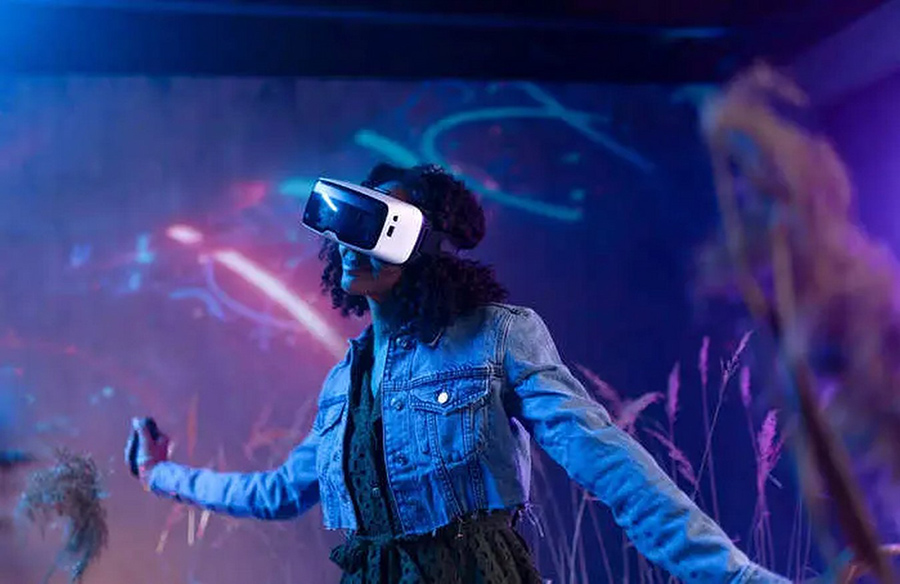Virtual-Reality Concerts: Transforming Live Music Experiences

The landscape of the music industry is constantly shifting, with artists navigating through evolving trends and platforms to sustain profitable careers. One significant aspect of artists’ revenue streams is derived from tours and merchandise sales, as emphasized by Live Nation, stating that touring remains the most lucrative segment for artists.
Embracing Virtual Reality in Concert Experiences
In a bid to offer fans unforgettable experiences, some artists are turning to virtual reality (VR) technology. The onset of the pandemic accelerated this trend, compelling musicians to explore alternative channels to engage with their audiences. Notably, Travis Scott’s virtual concert “Astronomical” within the game “Fortnite” attracted 12 million viewers and generated substantial revenue, marking a successful foray into VR concerts.
The interest in immersive concerts predates the pandemic, evidenced by Wave’s launch of a virtual platform for live concerts in 2019. Collaborations with renowned artists like The Weeknd, Justin Bieber, and John Legend showcase the potential of VR in reshaping live music experiences.
The Allure of VR Concerts for Artists and Fans
VR concerts offer a realm of experimentation and creativity for artists, enabling them to connect with fans in novel digital environments. For fans, the appeal lies in experiencing their favorite musicians in alternate worlds while bypassing traditional hurdles like ticket costs and large crowds.
Tech giants like Meta have recognized the potential of VR concerts, evident in initiatives like the Meta Quest Music Valley concert series featuring performances by popular artists. These virtual concerts not only cater to artistic expression but also strategically align with key moments in artists’ careers, enhancing fan engagement across diverse platforms.
Leading Innovations in VR Concert Technology
Platforms like AmazeVR are pioneering advancements in VR concert technology, collaborating with major labels and utilizing AI-powered rendering tools for hyperrealistic experiences. Enhanced visuals and immersive elements aim to bridge the gap between virtual and real-world interactions, delivering unparalleled concert experiences to audiences.
However, VR technology faces challenges such as limited adoption due to high costs, discomfort associated with prolonged use, and potential cognitive impacts. Overcoming these hurdles requires ongoing innovation and user education to maximize the potential of VR in entertainment.
Future Horizons for VR Concerts
Looking ahead, industry experts anticipate advancements in extended reality (XR) technologies, paving the way for interactive live experiences and enhanced avatar engagements between artists and fans. As VR evolves, it holds the promise of redefining entertainment paradigms and offering immersive, personalized experiences to music enthusiasts worldwide.












